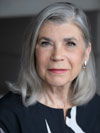 |
| Dame Helen Mirren with co-host Rosario Dawson at the Nobel Peace Prize concert in Oslo |
I promised a follow-up on my first report on the recent CIC Diversity Panel Seminar looking at how to increase the number of women on company boards. Entitled Constructive Women (nice title!!) and led by the redoubtable duo of structural engineer Jane Wernick and architect Angela Brady, current President of the RIBA, the event included a workshop facilitated by a 'thought leader in executive and top talent development.'
It quickly became apparent that this thought leader was not going to attract many followers. The audience restiveness quickly began with her remarks dismissing women non-executives directors as the “usual ten individuals who do very little except drink champagne”, followed by the suggestion to move on from promoting gender diversity – old hat and counter-productive apparently. However tension came to the boil with her advice that women aspiring to get on the board should not behave like ‘drama queens.’
Delegate after delegate rose to express their anger at both the arguments and the tone of voice. But as one organizer gamely commented, “How refreshing to get a real debate, rather than a chorus of consensus.” Relative calm was restored and a number of practical actions were discussed in small groups. Congratulations to Jane and Angela for driving the agenda.
The phrase ‘drama queens’ came back loud and clear this week, however, in a decidedly positive way. Hosting the Nobel Peace Prize concert in Oslo, Norway on Sunday 10 December, Dame Helen Mirren saw an opportunity and seized it. She combined her admiration and congratulation for the three women winners with the comment that it is shameful that only 12 women have won the Nobel Peace Prize in 112 years.
 |
| Three extraordinary women, changing the world. |
The three women honoured for their work are Liberian President Ellen Johnson Sirleaf, Liberian women's rights activist Leymah Gbowee, and democracy activist Tawakkul Karman, from Yemen. Commenting how important women historically have always been, specifically in terms of peace, Dame Helen described them as the role models for young women, adding, ''It is only a step on a journey that women are taking, and hopefully in 20-30 years' time we will be looking at a very different scenario in the world.”
 |
| Meryl Streep - Vogue's oldest cover girl |
Two days later and the extraordinary actress Meryl Streep is talking on Radio 4 about her latest role as Margaret Thatcher, in The Iron Lady. Filming began with her portraying Thatcher's early days in Parliament as Education Secretary, and Streep describes the sensation of walking into Parliament as a woman at that time as walking into a bath of fire. She goes on to say how she began to appreciate what it takes to be a leader, “what it takes to stand up to that level of distain, hatred and contempt every day, unrelentingly, and then get things done.”
Later in the interview, Streep talks about her support for the construction of a National Women's History Museum, in Washington DC, a proposal that is taking Congress for ever to endorse, despite the fact that it is being entirely privately funded. She has just given her salary from The Iron Lady to the cause and recently gathered a crowd of ground breakers for a photo opportunity. Amongst them was Madeline Albright, (the first woman Secretary of State in the US) who told her that she didn’t agree wih any of Margaret Thatcher’s policies, but “she was the only one who stood up with us in Bosnia and I’ll never forget it. I know what it’s like to be the first.”
In my first report on the CIC Diversity Panel seminar, I make the point that construction and engineering needed to recognize the influence of women as clients – ie the providers of business and revenue. Streep makes a similar point. Asked whether things are getting better for older actresses, she says that it is, commenting that there are more women in “the decision-making echelons of our business, the financial end who are in a position to green light pictures. We have infiltrated the enemy ranks!”
So if behaving like a drama queen means using position, authority and articulacy to make change for other women, I am all for it. As Dame Helen says, ''In my personal experience, wherever there was a force for the positive, for creativity, it was almost always led by women and they are doing it with no recognition and under very difficult circumstances. It is so important for all of us to realise that these movements start in very, very small ways.''
A standing ovation please, or at least three loud cheers for these leading ladies.
A standing ovation please, or at least three loud cheers for these leading ladies.
Supplementary trivia:
Helen Mirren and I were contemporaries in the same Essex town. She went to St Bernard's Convent, which my mother rejected when we found ourselves just one road out of the catchment area for our first choice of Westcliff High School. "Convent girls tend to go off the rails," she declared, so I cycled four miles each way every day to Southend High School instead.
I turned down a job at Vogue, many years ago when working as a fashion journalist. In those days, the job itself was considered to be sufficient reward and most youung women working there were assumed to have private incomes. It was the economy stupid, (I needed to pay the rent) so I missed my Devil wears Prada moment. Clearly not a sufficiently dedicated follower of fashion, I returned to the field that really excites me, construction and engineering.




